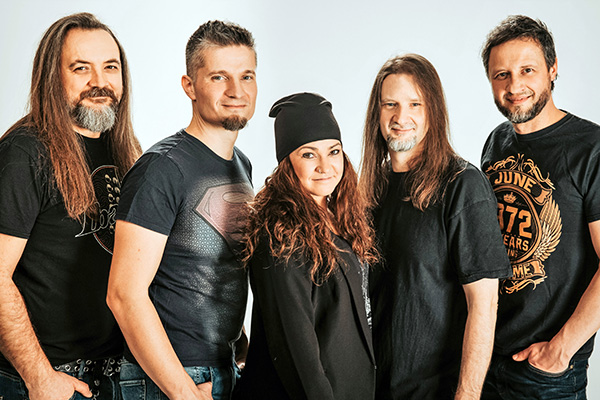
|

|



| Előadó: | Paddy and the Rats |
|---|---|
| Album: | Keressük! |
| Szövegírók: |
Oravecz Kristóf Paddy O'Reilly |
| Keressük a zeneszerzőt! | |
| Kiadó: | Keressük! |
| Stílus: | Folk Metal |
| Címkék: | Keressük! |

I was prowling all night
down the Hell Street
beside me a beggarman’s stinky dog
Talking ’bout life so bona fide
then woke up beside an old beggar mug
Slept in the alley and dremt about Sally
My pillow was my torn shoes
Had a marvellous sleep on a drunk cold night
Thank for the bittersweet booze
If you don’t see the light
On drunken winter nights
And the pain’s deep in your bones
And if you need a friend
I’ll be there to hold your hand
Then you’ll never walk alone
Don’t let the sun and the skies fall down
Whisper the sound from your soul
Hold my weak hands and don’t say goodbye
Then we’ll never walk alone
I’m prowling all night with my hands in my pocket
They’re harden into stone
Just Pull me in deep so I dare to confess
Sometimes you can't make it on your own
Can’t hear my heart beaten until it’s covered
with sorrow, we’re two worlds apart
As I can find a silent place
I’m one foot close to my heart
If you don’t see the light
On drunken winter nights
And the pain’s deep in your bones
And if you need a friend
I’ll be there to hold your hand
Then you’ll never walk alone
Don’t let the sun and the skies fall down
Whisper the sound from your soul
Hold my weak hands and don’t say goodbye
Then we’ll never walk alone
How do you find the right way
If there’s no shining light?
How do you trust your real belief
If destiny’s the one who’s defied?
How can be the pain so timeless
If time is on your side?
How do you find your real belief
If there’s no shining light?
If you don’t see the light
On drunken winter nights
And the pain’s deep in your bones
And if you need a friend
I’ll be there to hold your hand
Then you’ll never walk alone
Don’t let the sun and the skies fall down
Whisper the sound from your soul
Hold my weak hands and don’t say goodbye
Then we’ll never walk alone
Then we’ll never walk alone
Then we’ll never walk alone



Szó sincs retróról, de mindenképpen hangos időutazás a kétezres évek hazai könnyű-rock alapvetéseit egy színpadon látni.
A populárisabb Zanzibar nemrég múlt 25 éves, a vérbeli rock ’n roll brigád, vagyis a felvidéki Rómeó Vérzik pedig kereken három évtizedet ünnepelt novemberben. És bár a starttól mindkét csapat esetében évtizedek teltek el, tagok távoztak és érkeztek, gitárok törtek, meg aranylemezekkel telt meg a fal, egy valami nem változott: a zenéjük őszintesége.
- Nem vagyok az a típus, aki a múltba réved és azon töri a fejét, mit rontott el.. Soha nem függtünk senkitől, és ez adott nekünk igazi szabadságot
- mondta a Rockstar Magazinnak a Rómeó Vérzik frontembere, Koppány, amikor arról kérdezték, lenne-e olyan 30 év távlatából, amit mai fejjel másképpen csinálna.
.jpg)
Persze ha szabadságról meg hitelességről van szó, ahhoz Terecskei Ritáéknak is lesz pár szava, hiszen hiába változtak az idők az alakulásuk óta, ők az elmúlt – már több mint - negyed században kitartottak amellett az őszinte rockvonal mellett, amivel 1999 januárjában legendásan útnak indultak, hogy
olyan slágerek adjanak a hazai könnyűzenének, mint az Igazi nevem, vagy az Ádám keresi Évát és a Szerelemről szó sem volt.
Nem csak nosztalgia várható, hanem ugrálós-éneklős rockbuli is készül
Már csak azért is, mert a Rómeó Vérzik Koppánya kis kényszerpihenője után az Akvárium színpadán tér vissza a fővárosba, hogy még az eddiginél is nagyobb energiával csapjon a húrok közé, legalább annyira pörgős nótákkal, mint
Az Ördög, az Isten, az Élet és a Halál, a Keleti rock és roll, a Kiskakas pedig pláne, hogy nem maradhat le a setlist-ről.
A két zenekar amúgy még sosem turnézott együtt, úgyhogy ez a mostani, március 7-i koncert igazi hazai rocktörténeti különlegességnek számít majd.